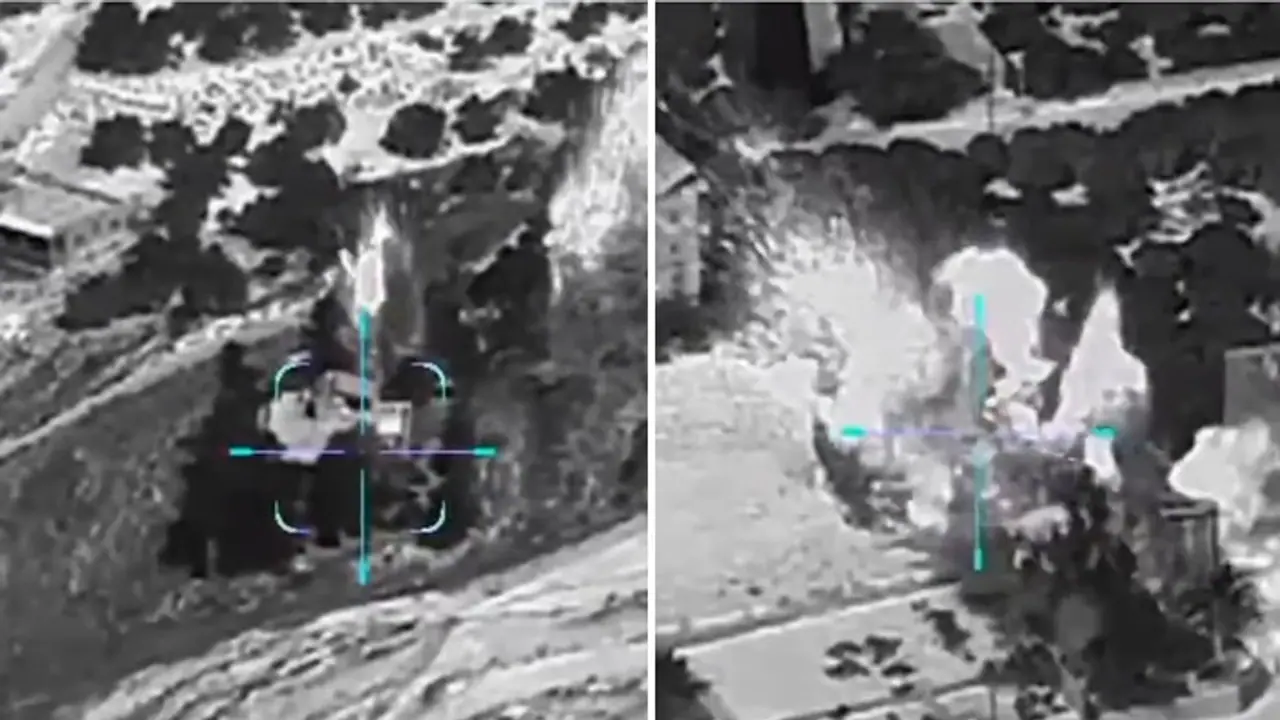In a significant escalation of the ongoing conflict between Israel and Hezbollah, the Israeli Air Force conducted precision airstrikes in southern Lebanon, resulting in the elimination of two high-ranking Hezbollah commanders.
In a significant escalation of the ongoing conflict between Israel and Hezbollah, the Israeli Air Force conducted precision airstrikes in southern Lebanon, resulting in the elimination of two high-ranking Hezbollah commanders. The Israel Defense Forces (IDF) identified the slain operatives as Ahmad Mustaga Alhaj Ali and Muhammad Ali Hamdan, both of whom were key figures in Hezbollah’s operations targeting northern Israel.

Ahmad Mustaga Alhaj Ali, one of the commanders killed, was described by the IDF as the leader of Hezbollah’s Houla Front. He was responsible for launching hundreds of rockets and anti-tank missiles at Kiryat Shmona, a northern Israeli city that has endured heavy bombardment throughout the ongoing conflict.
Muhammad Ali Hamdan, the second commander killed, was Hezbollah’s head of the anti-tank unit in the Meiss Ej Jabal area, which is located directly across the border from Kiryat Shmona. According to Israeli military reports, Hamdan was behind several anti-tank missile attacks aimed at civilian communities in Israel's northern region.
The IDF stated that both strikes were conducted with precision to minimize civilian casualties, with the air force issuing prior warnings to evacuate the targeted areas.
In addition to eliminating the two Hezbollah commanders, the IDF carried out multiple strikes on weapons caches in both southern Lebanon and Beirut. The military noted that these operations were part of a broader effort to degrade Hezbollah's ability to launch further attacks on Israel. In Beirut, the IDF implemented precautionary measures by warning residents in advance to evacuate, seeking to prevent civilian casualties.
The IDF continues to emphasize its focus on targeting Hezbollah infrastructure and personnel, stating that it will relentlessly pursue Hezbollah operatives who pose a threat to Israeli civilians.
Meanwhile, the IDF confirmed the death of Sgt. Maj. (res.) Ronny Ganizate, 36, of Givat Shmuel, a reserve soldier serving in the Alon Brigade’s 5030th Battalion. Ganizate was killed during combat operations against Hezbollah forces in southern Lebanon. Another soldier from the same battalion sustained serious injuries in the same incident and has been hospitalized. Ganizate’s death marks the 12th Israeli soldier to have fallen in the ongoing ground offensive against Hezbollah forces in southern Lebanon.
Amid the escalating military actions, the United States sees Israel's campaign against Hezbollah as an opportunity to weaken the terror group’s political influence in Lebanon. The Wall Street Journal reported that US Secretary of State Antony Blinken has been actively lobbying Arab leaders to support the election of a new Lebanese president. Lebanon has been without a president since 2022, largely due to internal political gridlock, with Hezbollah playing a key role in obstructing the election process.
However, despite Washington's efforts, diplomatic sources suggest that significant obstacles remain. Egyptian and Qatari officials have reportedly downplayed the possibility of sidelining Hezbollah, citing the group's entrenched influence within Lebanon. They also cautioned against creating the perception that Israel would be the primary beneficiary of any political shift, which could complicate regional dynamics.
The conflict between Israel and Hezbollah has intensified over recent weeks, with cross-border exchanges of fire becoming increasingly frequent. Hezbollah, a Shiite militant group backed by Iran, has long been a formidable adversary of Israel, with significant influence in Lebanon’s political and military landscape. The ongoing hostilities are raising concerns about a broader regional conflict as Hezbollah continues to launch attacks from its bases in southern Lebanon, drawing fierce retaliatory strikes from the IDF.
As the conflict escalates, both sides appear entrenched, with no immediate prospects for a ceasefire. Israel has made it clear that it will continue to target Hezbollah commanders and infrastructure, while Hezbollah has vowed to maintain its resistance.
